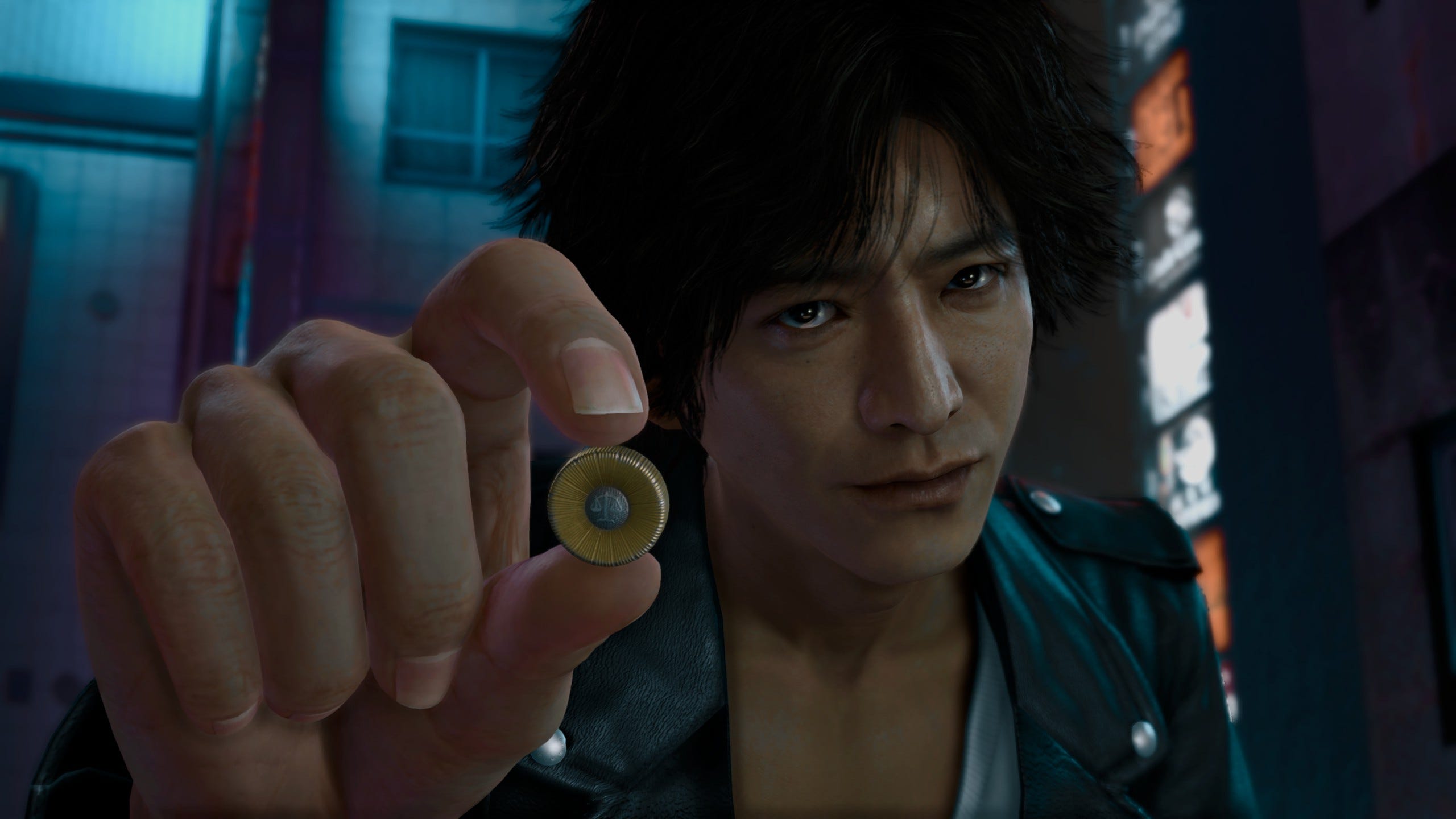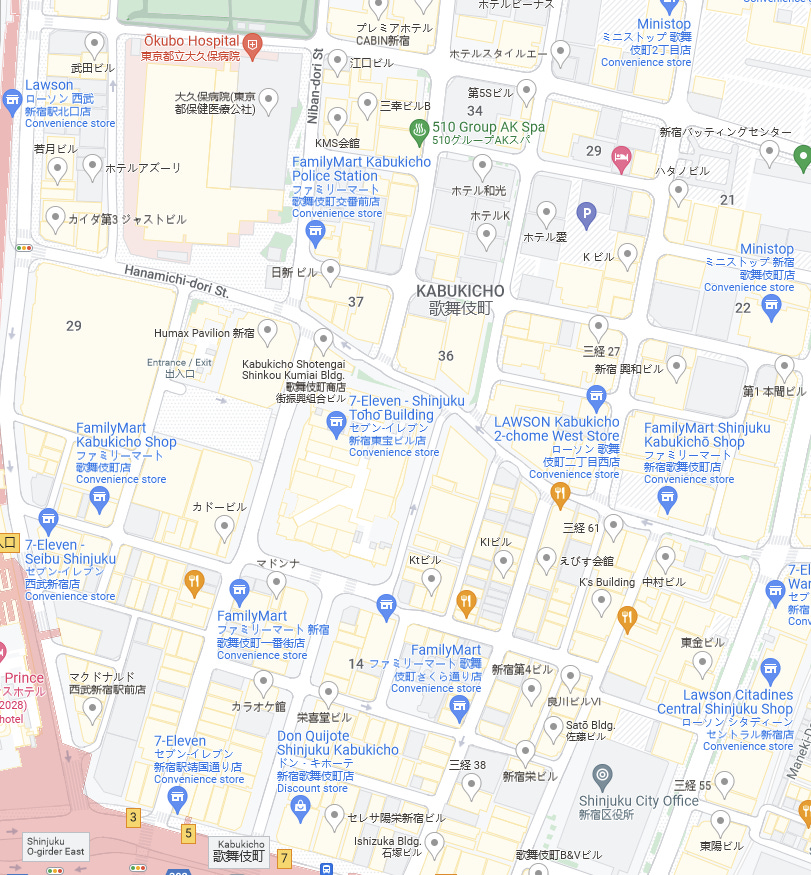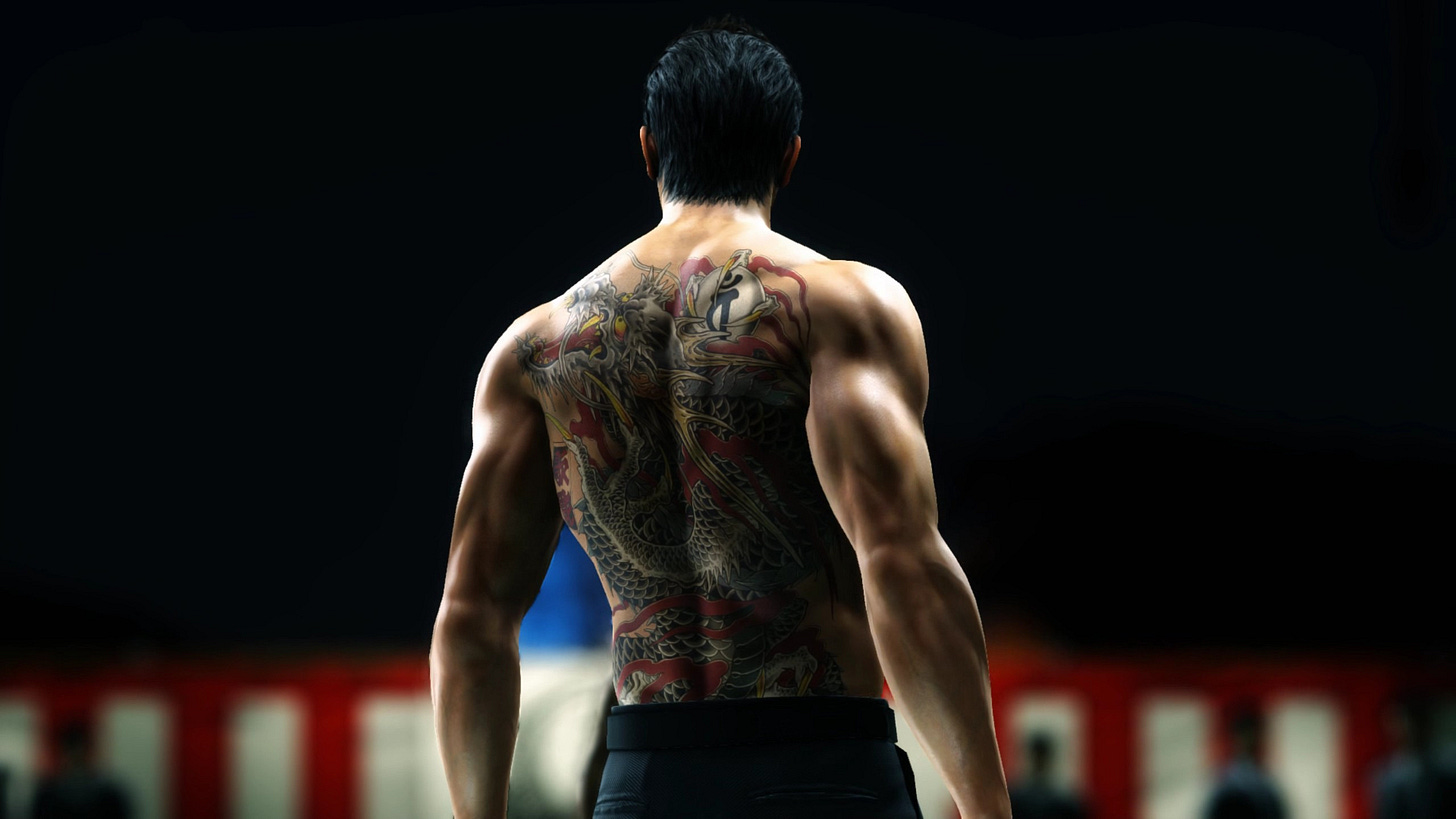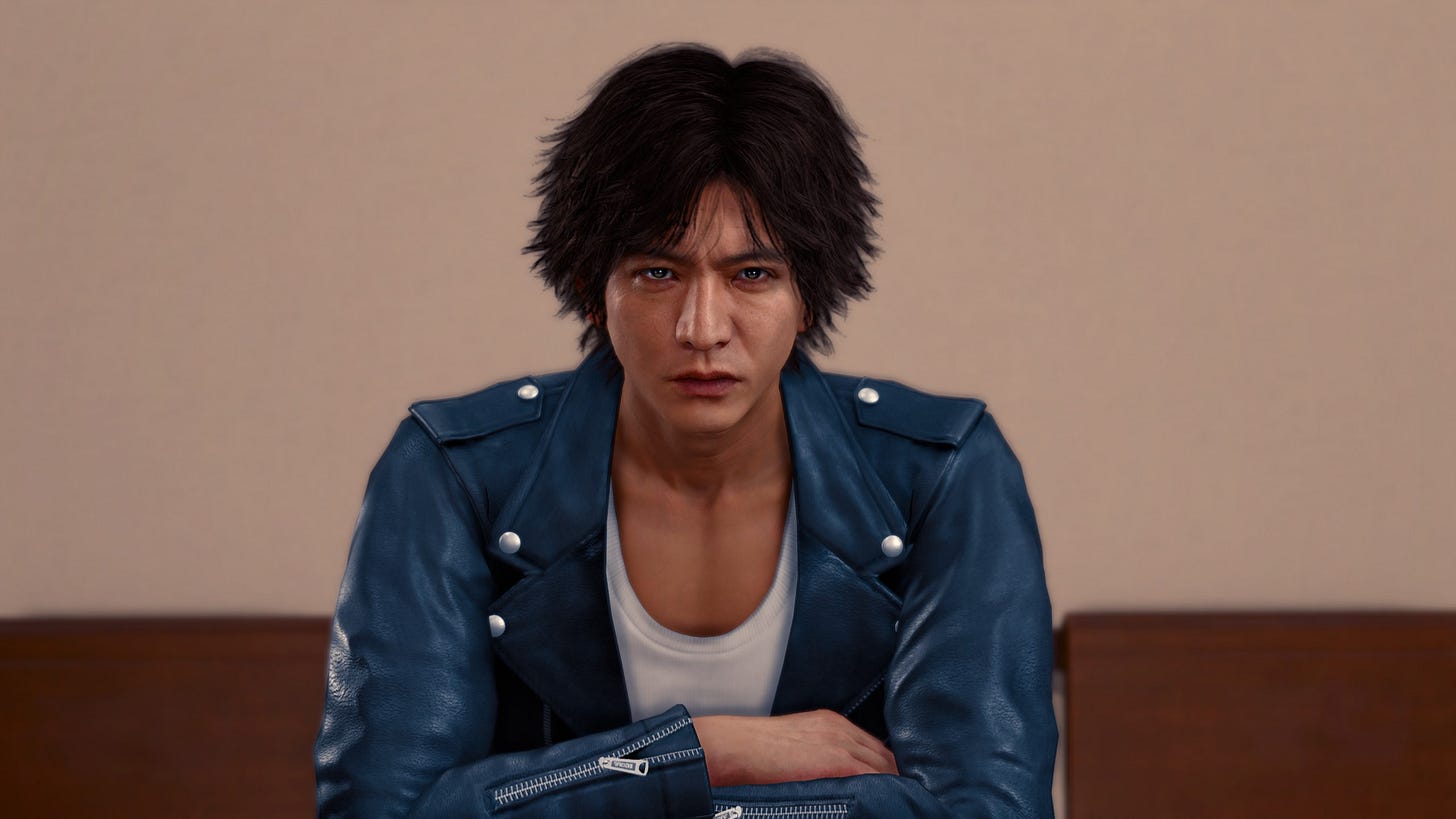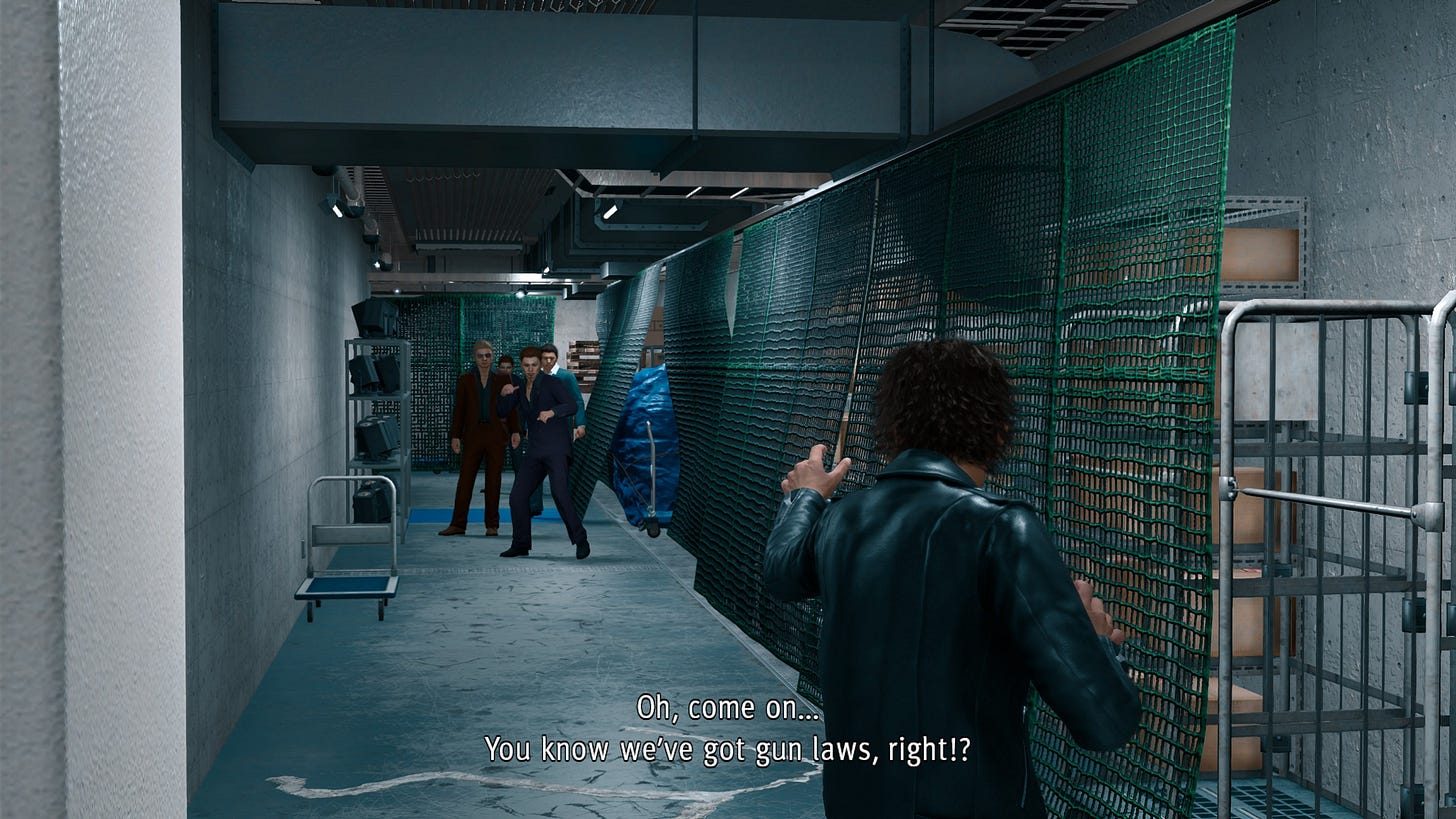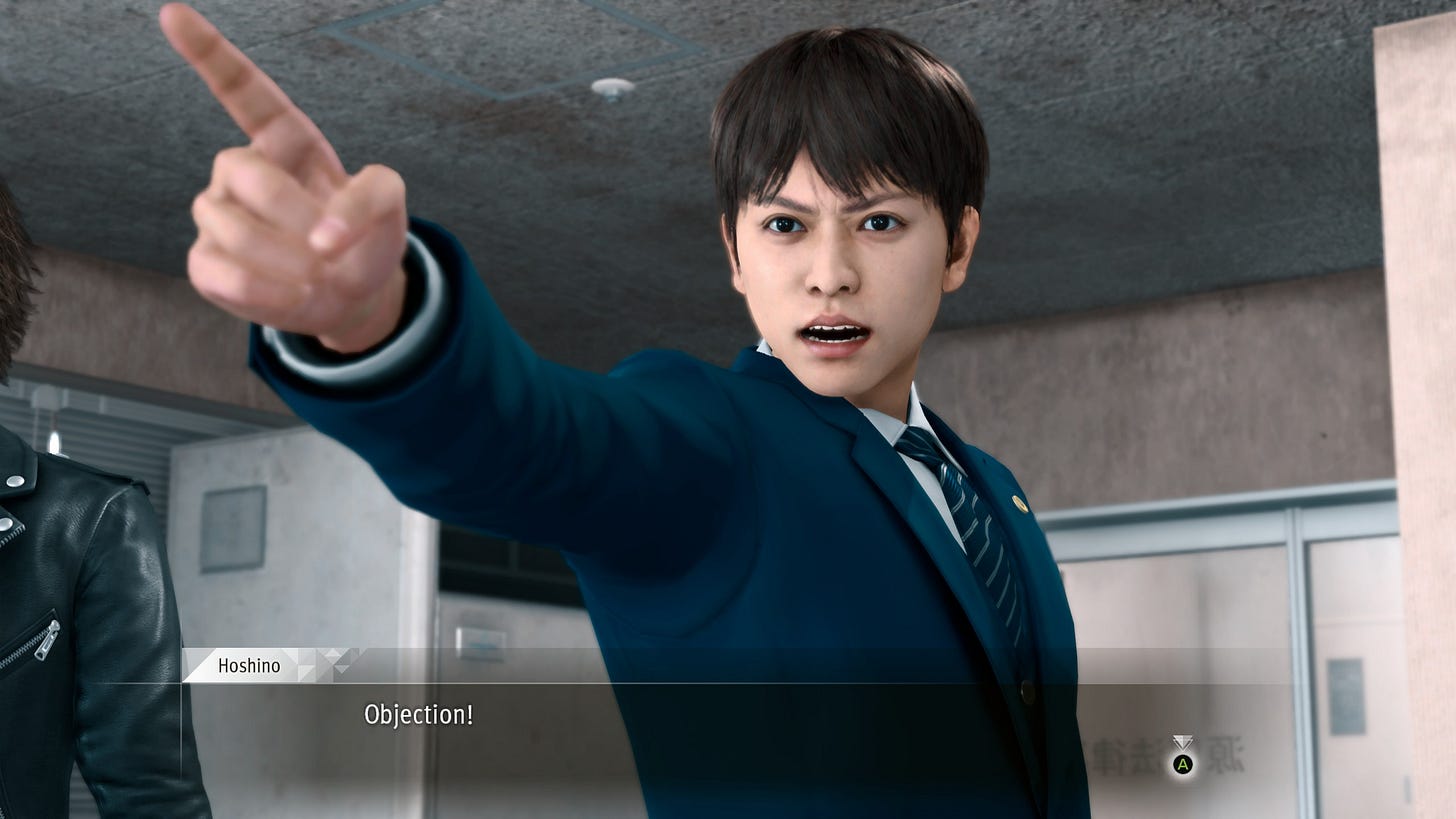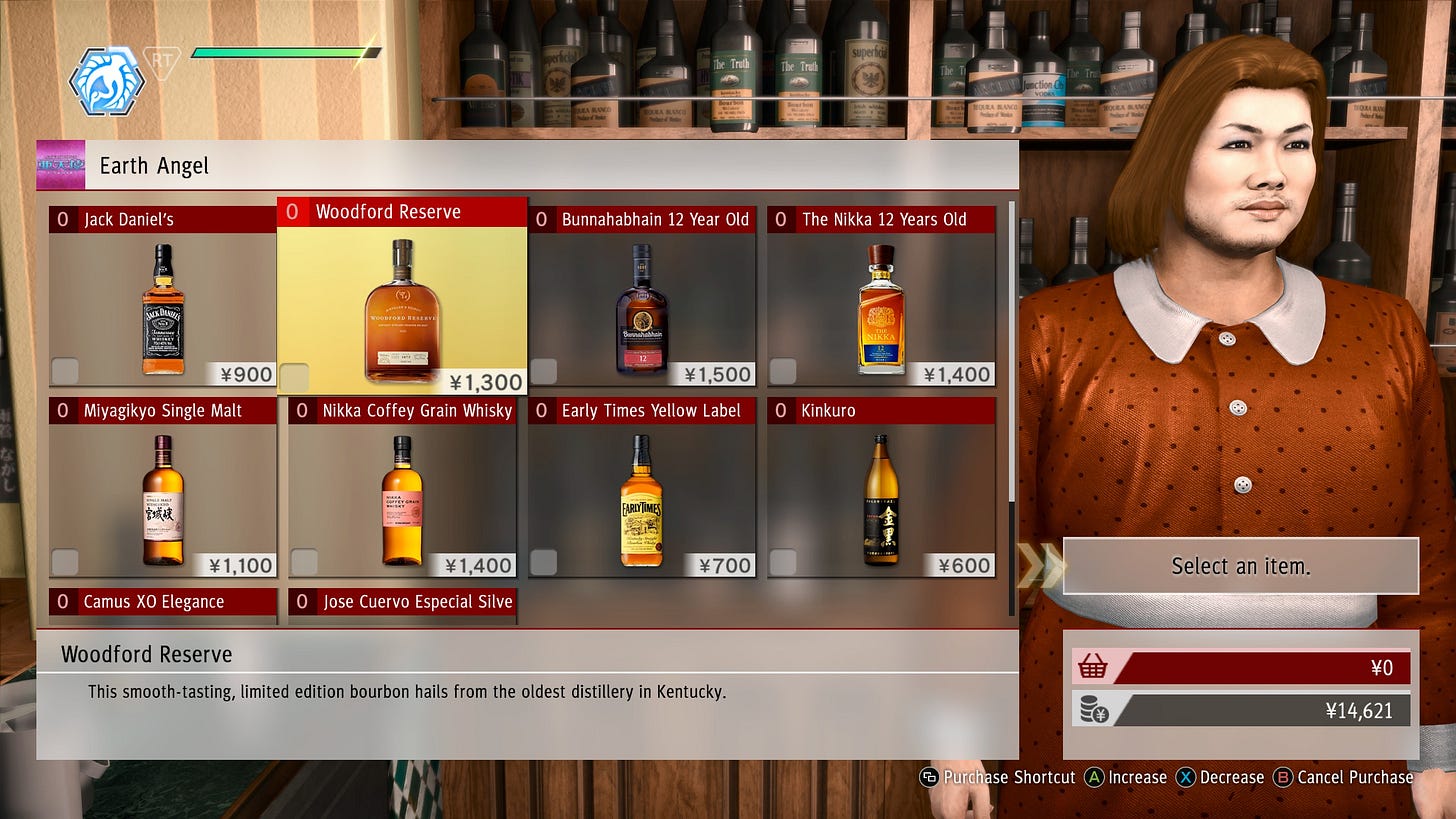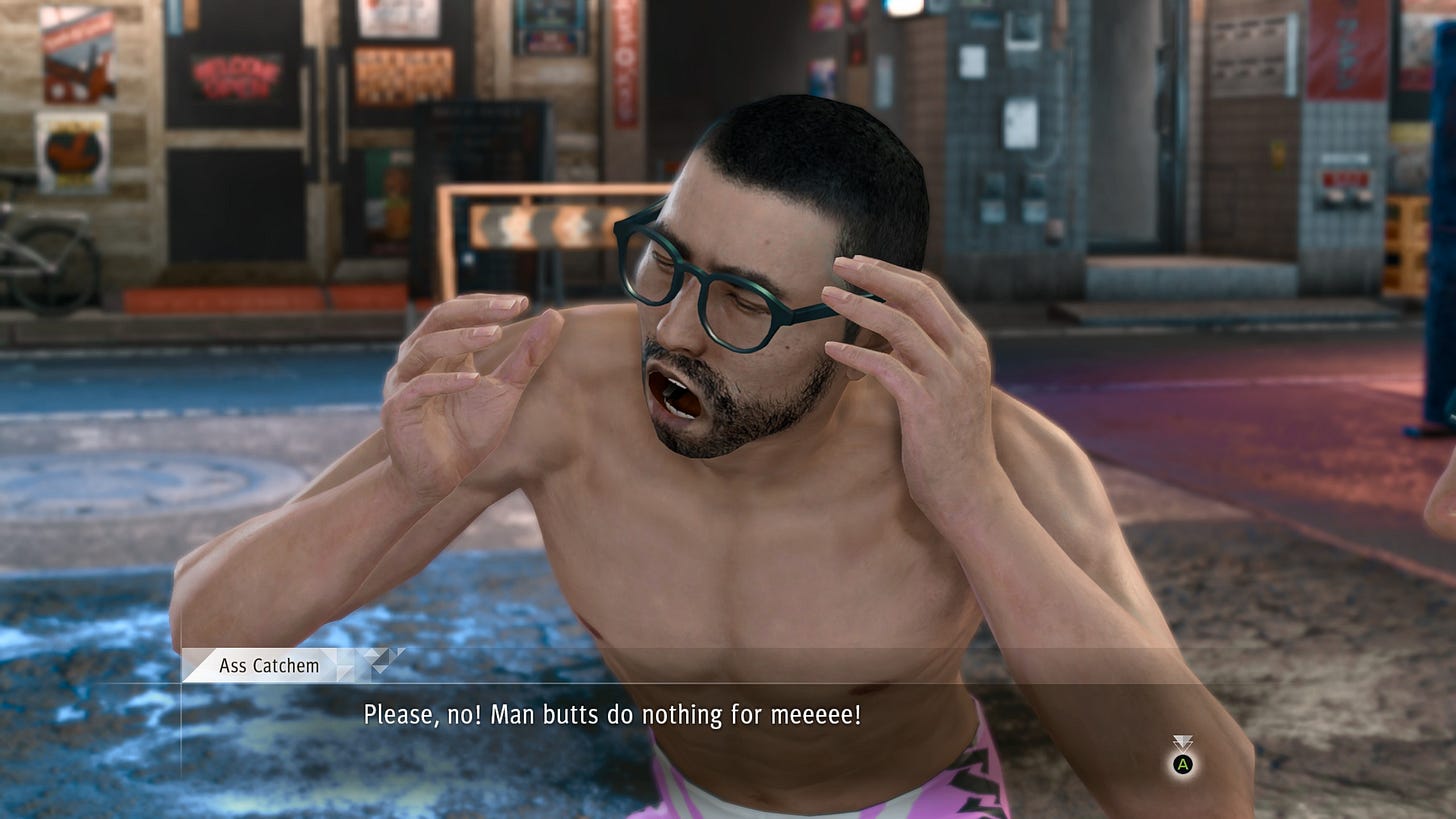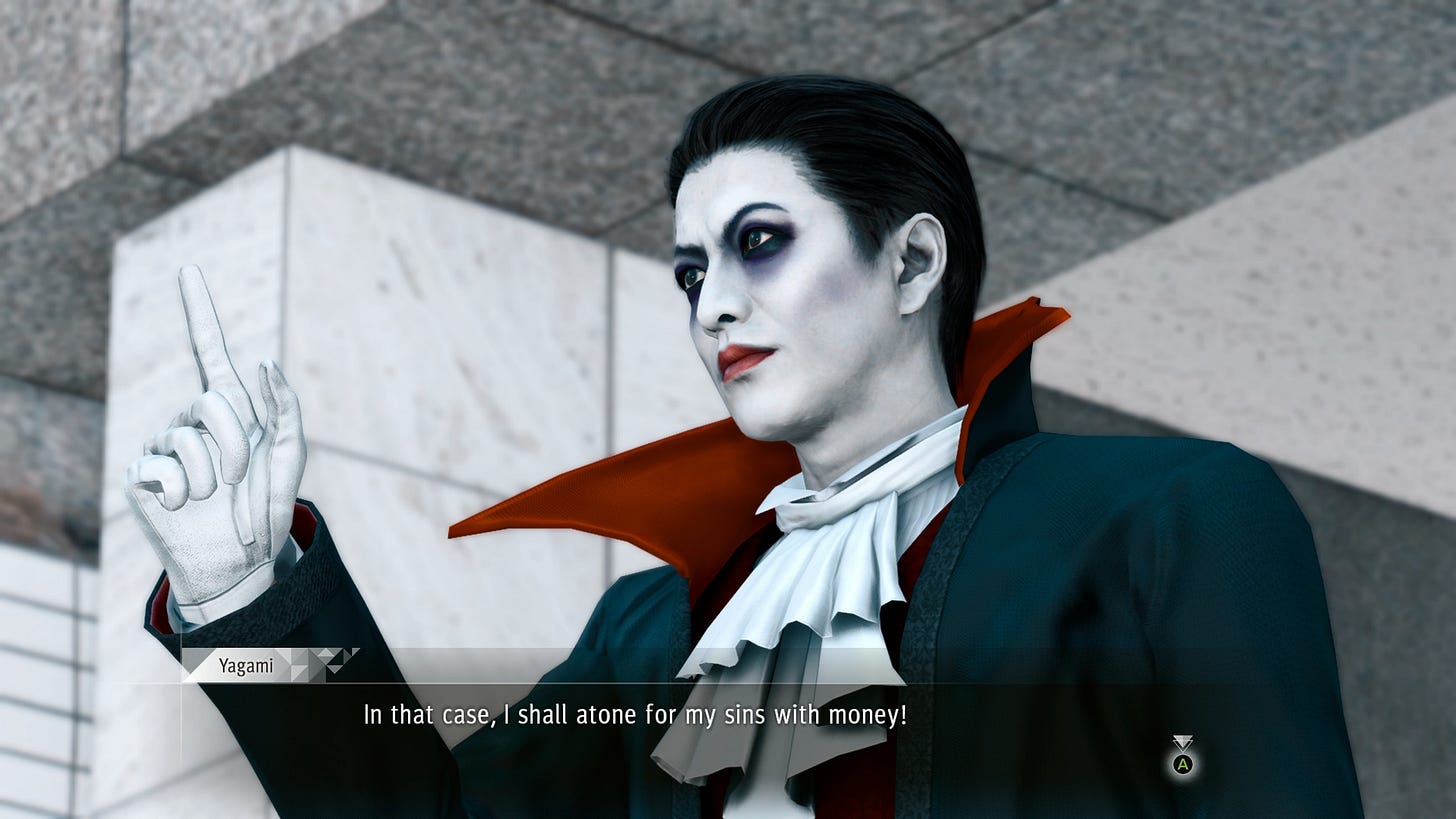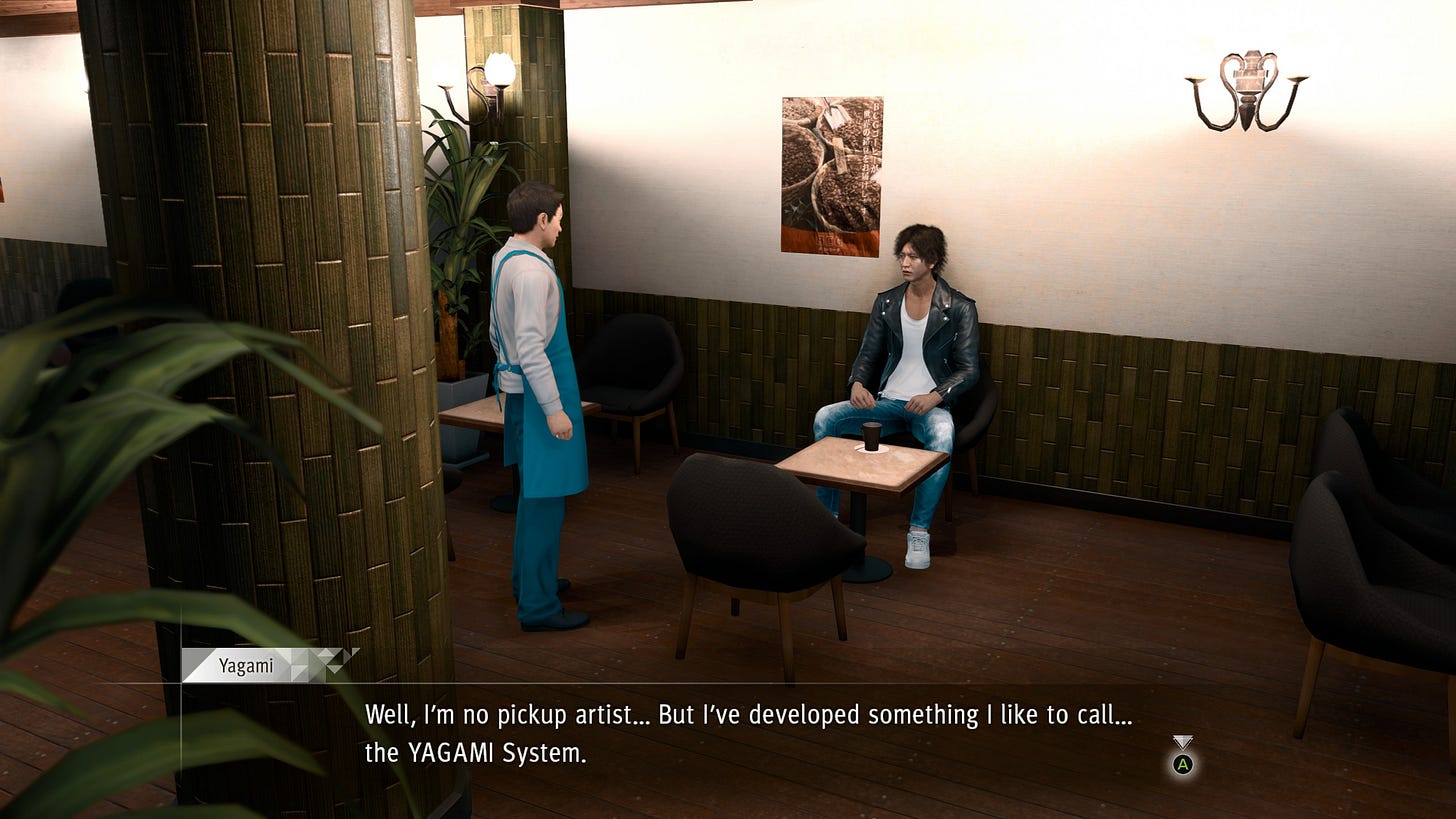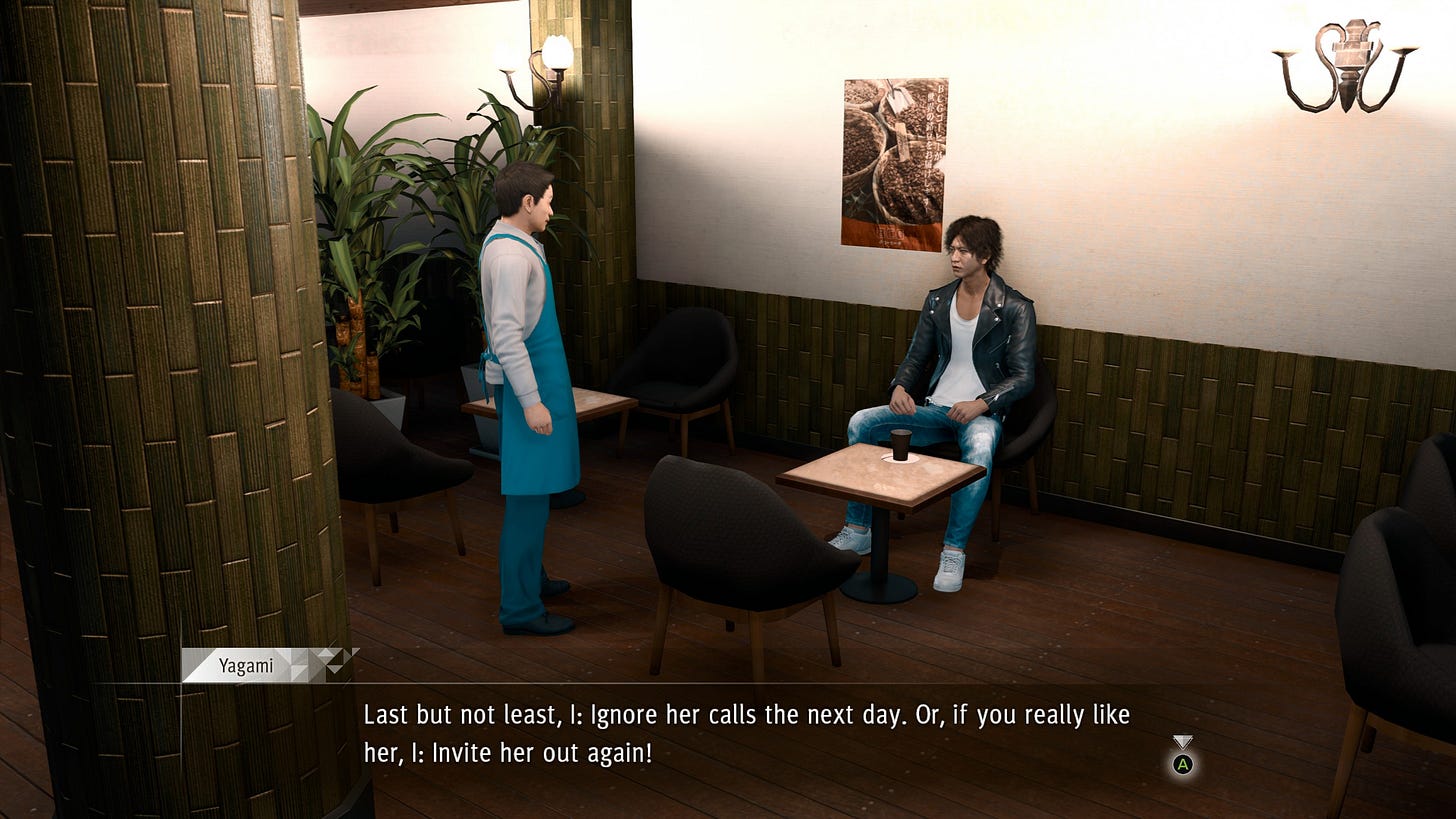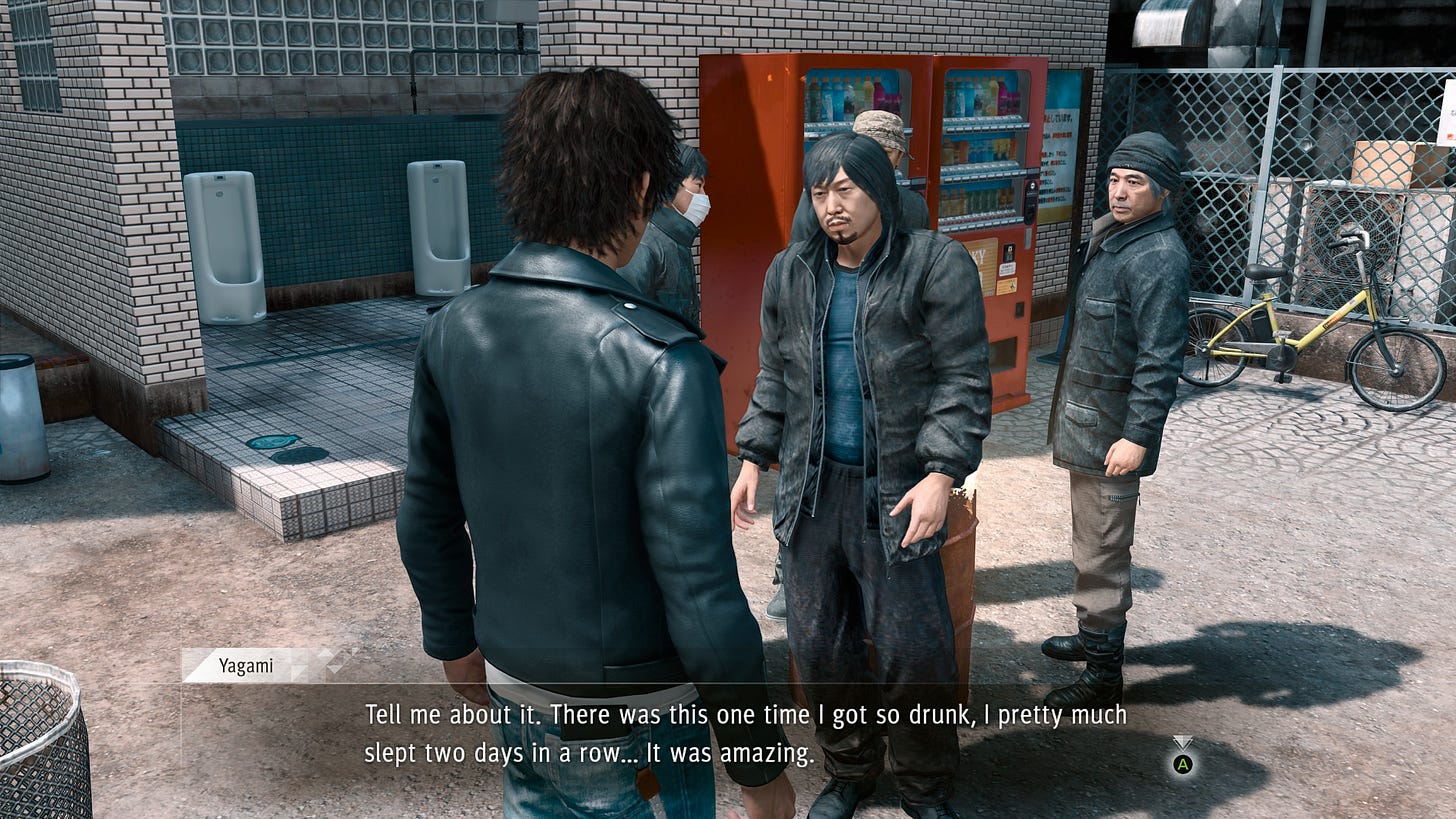Thank God Judgment Is Finally On PC
It's a game that combines solving crime, drama, and lawyer depression
I am a huge fan of the Yakuza series. The long-running series put you in the shoes of a progressively aging gangster, dragged reluctantly into various fights to control a powerful Yakuza clan or cover up government malfeasance. The series has a knack for writing serious crime stories that evolve over the course of the game, while providing a plethora of weird and silly side stories that lighten the mood. And the games mostly take place in the same Tokyo red light district, which allows you to see how the neighborhood changes over time. Seeing how some restaurants last for years, while others go out of business and are replaced by new ones, gives the series a sense of place that other games lack.
Judgment was created as a spinoff from the main Yakuza franchise. Instead of playing as a former Yakuza, you play as a former lawyer turned detective. And while the main Yakuza series has recently moved to a turn-based party system, the Judgment series retains the beat-em-up action combat of prior games in the franchise.
Both the game Judgment and its sequel, Lost Judgment were released on PC last month. As a fan of the series who has not played a Yakuza game in over a year, I could not wait to play them.
It was time well spent.
Yakuza Cosplays Ace Attorney
By changing the main character, this spin-off is able to explore some different topics. The story in most Yakuza games revolves around some new drama happening within the Tojo Clan, which inevitably drags the protagonist, a former Tojo member, into the fight, culminating in a fight between two men wearing suit pants and no shirts so you can see their sick tattoos.
Judgment changes up the main character and setting. The protagonist, Takayuki Yagami, used to be a lawyer who helped a client be acquitted of murder. This was an achievement because Japan famously has a 99% conviction rate for criminal trials. But shortly after acquittal, the former client murdered his girlfriend, causing Yagami to become disillusioned with the law and become a private investigator instead. Over the course of this game, Yagami is dragged into helping investigate clues in a murder case for his old law firm and eventually trying to solve a series of murders connected to his past. It’s a solid story, and it left me impatient to progress the narrative as it unfolded.
Because Yagami is a private citizen with an attorney’s license, the way you play the game reflects that. In addition to beating up bad guys with your fists (which you will do a lot of), you will need to practice trailing suspects to see where they go, and you’ll find yourself picking a lot of locks. There are a number of gameplay elements like these that emphasize the main character’s job is to find out hidden truths, not just beat up random jerks on the street. And when you do beat up random guys on the street, you will always do so with your fists; you cannot carry around weapons or grab guns from foes to shoot them the way you could in a Yakuza game. Unlike the gangsters in those games, you are a lawyer and don’t need to get arrested for possessing a firearm.
To fit the detective theme, Judgment will sometimes pretends to be an Ace Attorney game. When you find new information in the main story, the game will inform you that new “evidence” has been added to the “case file.” And when characters try to puzzle out the truth behind a narrative mystery, the game often lets you guess from several options of what is going on. Unlike Ace Attorney, guessing wrong does not penalize you or cause a game over; you are simply told you are wrong and guess again. So it’s a more cosmetic choice to bolster the detective theme, but it’s one of a dozen little details that the game uses to reinforce the distinct nature of this spin-off.
These twists on the game formula, as well as the use of characters less tied to the criminal world, make the experience feel fresh. Characters in Yakuza wish they could leave their old lives behind and live regular lives, but the characters in Judgment already live that way. As a civilian, Yagami can visit courtrooms and government buildings without needing to punch his way through. This differs from the Yakuza series, where the protagonist Kiryu can’t visit a hospital without knocking out 100 guys in garish suits.
That isn’t to say that all the new gameplay elements work. Tailing, in particular, is a frustrating experience. Targets will often walk in big circle around the neighborhood, requiring you to spend 5 minutes ducking behind random signs and walls to avoid line of sight. And the game is inconsistent about what objects you can hide behind; sometimes you may see three signs of the same size but only be able to hide behind one of them. The same goes for lock picking; one variation involves slowly rotating the controller thumbsticks at a very specific speed. You may need to do this 4-6 times, and if you mess up even briefly, you have to start over at the beginning. This is the first game in the series, so I am willing to cut these additions some slack. But they mar some of the experience.
This is slightly balanced out by the fact that you will frequently kicked into first person to examine a room or crime scene for clues, and in every single scene you will hear a meowing cat in the distance. You can always find the cat in each scene, though sometimes it is farther away than its volume would suggest. Having cats in every investigation scene was completely unnecessary, and yet there is something amusing about searching a locked room for a key while a cat loudly meows outside to distract you.
Digital Tourism Is Still Fun
But thankfully the game retains the best elements of the Yakuza series. As I blew through several games during the pandemic, I found them to be very comfortable forms of digital tourism. That remains the case here; you can walk into a convenience store, change the camera to first-person, and feel a deep, intense nostalgia for 7-Eleven and Family Mart in Asia as you peer at the wall of drinks.
The studio that makes the Yakuza games is very good at getting licenses for real-world products, which allows you walk into a bar and decide whether you want Suntory Whiskey or Woodford Reserve. In some past games the bartender would share a few sentences of background on each spirit, though that is not the case here. But it remains enjoyable to order a bento box from a convenience store that very clearly was added to the game by taking a photo of a real-world bento. It’s a form of escapism that’s unique to this series.
Side Quests Are Mostly Delightful
The final piece of what makes Judgment enjoyable is the sidequests. In previous Yakuza games, the protagonist was somewhat serious and unemotional, so the series used side quests to put him in ridiculous situations and act as a straight man. Judgment has the benefit of a protagonist with a more complex personality, which means sidequests can play off of him without always needing to be absurd. For example, I had fun doing a series of sidequests where the manager at a local coffee decides to let you taste rare coffee beans, and you have to guess what coffee you drink by its flavor profile.
That isn’t to say that sidequests veer away from the absurd; absurd setups are a series staple. For this reason, you will be hired to catch a series of local perverts, including a groper named Ass Catchem.
Or you may be asked to dress up as a famous vampire so the real one can avoid being questioned by the press for a recent scandal.
Many of these side stories work well because of the writing. The setups can be absurd, but the writing team (and localization team) is excellent at using wordplay and humor to either lighten serious moments or reinforce the deliberately absurd.
The only drawback of the side stories is that some have uneven quality. For example, some side stories are detective jobs you pick up on the side. Too many of these jobs will involve spouses who suspect each other of cheating and demand you engage in a long tailing mission. Really, these people should just talk to each other. Similarly, there is a friendship system where you make friends with different people in town, who will then unlock new side stories for you. Many of these are bland, like shopping at a convenience store multiple times so the clerk likes you. But there are 50 such friendships to form, and if you do them all you can do a final side mission that ties them all together. I like the idea in concept, but I found the friendship system too tedious overall to justify the time.
Ultimately, however, I enjoyed my time with Judgment. I would recommend it to anyone who is interested in dipping a toe into the Yakuza series, or who has played the series but not this spin-off because of its belated PC port. Yagami works well as a main character, and this game mixes up some expectations players might have developed from the main series.
Finally, and most important, Judgment teaches the key to being a successful lawyer: (A) Carry a small metal badge, (B) quit the profession due to stress, and (C) develop an alcohol addiction.




